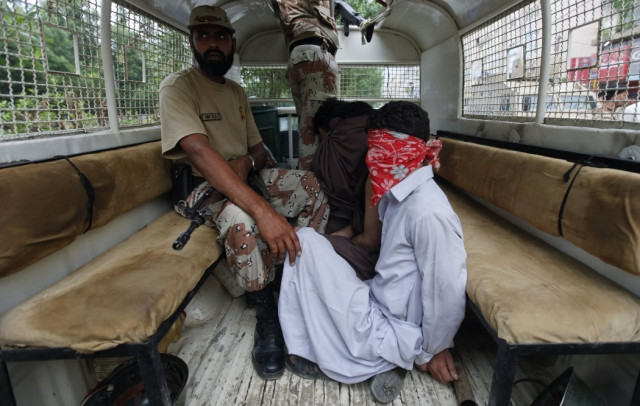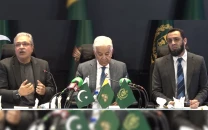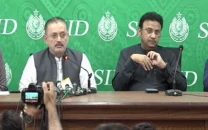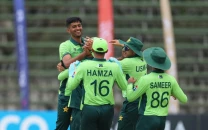Karachi violence case: Supreme Court reserves its judgment
Sindh AG says hearings have already made a difference.

After a rhetoric-laden finale to its suo motu hearings into the violence in Karachi, the Supreme Court on Thursday reserved its judgment in the case.
The apex court wrapped up the proceedings in remarkably short order, concluding the case after only 10 days of hearings at the Karachi registry of the Supreme Court. The five-member bench was led by Chief Justice Iftikhar Muhammad Chaudhry, and also comprised Justice Anwar Zaheer Jamali, Justice Amir Hani Muslim, Justice Sarmad Jalal Osmany and Justice Ghulam Rabbani.
The court had begun proceedings after an upsurge of violence that left more than 400 people dead in Karachi in a period of less than two months.
Much of the last day of hearings was spent in a back and forth between the bench and the government’s lawyers, with the former accusing the latter of giving political speeches rather that providing solutions to the problem. The hearing seemed more like a public policy debate rather than a hearing in a courtroom.
The judges, especially Chief Justice Chaudhry, kept asking the government to provide a way forward for curbing the violence and lawlessness in the country’s largest city – the third largest in the world.
(Read: Sorting out Karachi’s troubles)
The bench directed the Sindh Advocate General Abdul Fattah Malik to submit a daily report to Justice Anwar Zaheer Jamali and Justice Sarmad Jalal Osmany on cases relating to crime in the city since July 24.
The apex court also asked its subordinate judges presiding over such cases to deliver verdicts as soon as possible. The Sindh chief secretary was asked to provide assistance to the courts.
The bench requested the head of the Karachi Police to provide certificates signed by the city’s four deputy inspectors general about the measures being undertaken to curb extortion in the country’s financial and commercial capital.
The court also asked for a report on actions taken against the Karachi’s extortion rackets every day.
While the court’s hearings may have wrapped up relatively quickly, provincial government officials in Sindh feel that it seems to have made a difference already. The Sindh attorney general said that conditions in Karachi had improved following the suo motu case. He said that extortion, in particular, had decreased.
(Read: Extortion - Pay up or die!)
Chief Justice Chaudhry also expressed his desire that those responsible for the deaths of policemen during the intense police/military operations in 1992 be brought to justice.
Published in The Express Tribune, September 16th, 2011.


















COMMENTS
Comments are moderated and generally will be posted if they are on-topic and not abusive.
For more information, please see our Comments FAQ